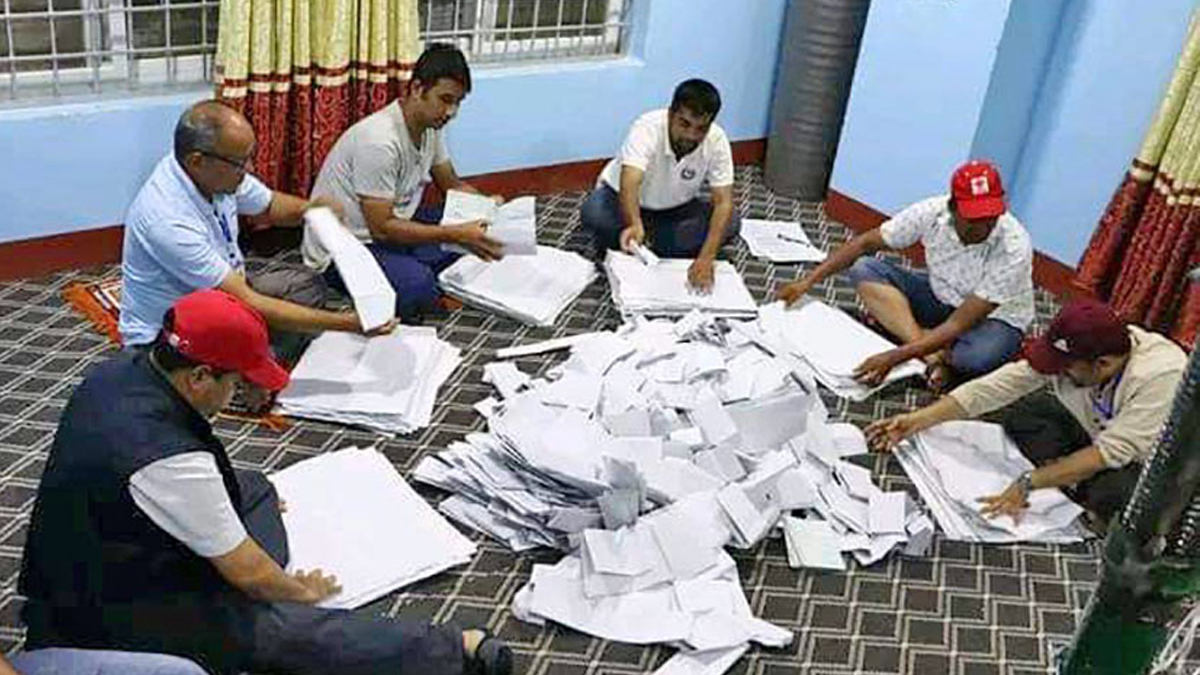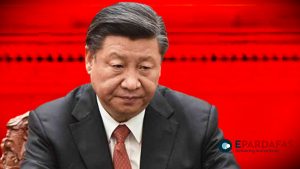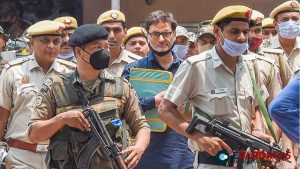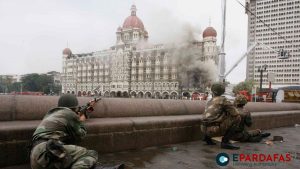
“Ensuring Fair Elections: The Importance of Recounting Votes in Upholding Electoral Integrity”

The recent election has sparked heated debates and calls for a recount of votes.
A recount is a process where election officials manually examine the ballots to determine the accurate result of the election. This process is a critical step in ensuring the integrity of the election and restoring public trust in the democratic process. The recent decision by the Judges of court to deny request for a recount of ballots in several high-profile elections has raised concerns about the impact of such decision on the democratic process. While a judge has responsibility to interpret the laws and ensure the fairness and integrity of the election process, denying recount-requests can have far-reaching consequences for the legitimacy of the election result and the trust of the people in the democratic process. As, denying a recount can create doubt and mistrust in the electoral system and undermine public confidence in the outcome of the election.
Recounting votes is an important aspect of ensuring the accuracy and integrity of the election process. It provides a check against errors or inconsistencies in the initial counting, and it helps to confirm the legitimacy of the election result.
As, by denying requests for a recount, judges are effectively limiting the ability of citizens to verify the accuracy of the election result and to ensure that their votes have been counted properly. Basically the recount process involves re-tabulating the votes from each polling station to confirm the result reported on election right. This process is conducted under the supervision of election officials, political party representatives, and independent observers to ensure transparency and impartiality. The recount provides an opportunity to identify and correct any mistakes or inconsistencies in the recounting process.
Recounting votes is a standard procedure in many countries, and it is done to ensure the accuracy of the election result. The process can also uncover instances of fraud or other irregularities that may have occurred during the election officials can take corrective actions to ensure that the final result reflects the will of the people.
Cases:
There have been several cases in India where recounting of votes has been requested and conducted.
As in the Context till now only requested has been made but recounting of votes has not been conducted yet. One of the most high-profile cases in recent times was the 2019 Lok Sabha elections in the constituency of Amethi, Uttar Pradesh.
In this election, Rahul Gandhi of the Indian National Congress (INC) was defeated by Smriti Irani of the Bharatiya Janata Party (BJP) by a margin of 55,000 votes. The INC subsequently requested a recount, which was initially denied by the election commission. However, the recount was eventually ordered after the Supreme Court intervened, and it was found that Irani had indeed won by a margin of over 35,000 votes.
In the 2009 Lok Sabha elections, there was controversy over the counting of votes in the constituency of South Mumbai.
The INC’s Milind Deora won the election by a margin of 1,100 votes, but the Shiv Sena alleged that there had been irregularities in the counting process. A recount was subsequently ordered, and it was found that Deora had indeed won by a margin of over 11,000 votes.
These cases illustrate the importance of recounting votes in ensuring the accuracy and fairness of the electoral process. Recounts can help to resolve disputes, prevent electoral fraud, and promote transparency and accountability. However, as the cases in India demonstrate, there can be challenges associated with conducting a recount, including legal hurdles, logistical difficulties, and political resistance.
Nonetheless, ensuring that recounts can be conducted in a fair and transparent manner is essential for upholding the integrity of the electoral process and promoting public confidence in democratic institutions.
Conclusion:
In conclusion, recounting of votes is a critical aspect of ensuring free and fair elections in India and other democratic nations.
It is an essential mechanism to verify the accuracy of the vote count and prevent electoral fraud. Recounts also help to address concerns about political interference and promote transparency and accountability in the electoral process.While there can be challenges associated with conducting a recount, such as legal hurdles and political resistance, it is crucial to address these challenges and create an environment that supports the conduct of fair and transparent recounts. The cases of India involving recounting of votes demonstrate the importance of this mechanism in upholding the integrity of the electoral process and ensuring that the will of the people is accurately reflected in the election results.
So in the context of Nepal also recounting of vote is necessary prospective for fair maintain election integrity, so it should not be denied.













Comments